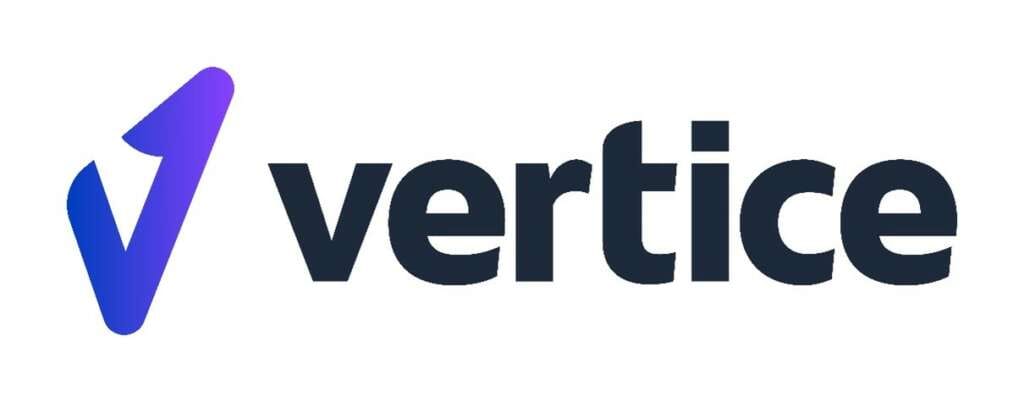
Vertice survey reveals friction between finance and tech leaders is preventing companies from controlling cloud spending

Vertice launches its solution for cloud cost control – a Cloud Cost Optimization Platform to give finance and tech leaders shared visibility and control of cloud investments, enabling companies to cut cloud costs by up to 25%.
Vertice, the first optimisation platform for SaaS and cloud spend, today announced the results of its global survey, “The State of Cloud Cost Optimisation”, which reveals that organisations are being held back from controlling their cloud spending and gaining ROI because of a lack of alignment between finance and tech leaders.
Amidst cloud costs rising by an average of 35% year on year*, Vertice surveyed 600 senior finance and tech leaders in the US and UK and found that cutting cloud spending was the highest priority for finance leaders, with more than three quarters (78%) listing it among their top three cost-saving priorities and a third (33.5%) revealing it as their number one priority. Only 9% of technical leaders say reducing cloud costs is a top concern; instead, 4 out of 10 say their priority is hiring skilled cloud employees.
* Vertice analysed cloud spending of its customers in the period August 2022 to August 2023 and found that companies are seeing average growth in cloud costs of 35%.
55% of finance leaders blame a lack of transparency from tech leaders, with 44% saying they can’t get visibility of cloud costs. Adding to this misalignment, relationships with cloud hosting providers are highlighted as a major threat to cost efficiency, with 39% of finance leaders finding it difficult to negotiate costs because technical staff own relationships with cloud vendors.
Alarmingly, over half (55%) of tech leaders say tension is caused by non-technical staff lacking the knowledge or expertise to understand cloud infrastructure configurations. 25% of tech bosses say that finance staff want to reduce cloud spending, but they don’t have the tech or engineering resources to focus on cloud optimisation.
Leaders of scale-ups were by far the most likely to report high levels of friction, reporting a higher average rating of tension (8/10) than those working in startups (5.4/10) and midmarket-sized companies (6.6/10), and almost twice the intensity of friction than those working inside enterprise-sized organisations (4.3/10).
To help organisations tackle the challenge of spiralling cloud spending, Vertice today launched its Cloud Cost Optimization platform, which empowers businesses to cut cloud spend by as much as 25%. Vertice, which already helps customers save 20-30% on SaaS spend, has designed the platform to solve the acute problems faced by finance and tech leaders trying to reduce cloud spend.
Vertice tracks cloud usage and spending in real-time in a unified dashboard for finance and tech, removing the barrier between teams and enabling finance leaders to accurately forecast and control spending. It uses automation to ease the burden on busy engineering teams and elevate every aspect of cloud cost optimisation by performing continuous tests to highlight where efficiencies and savings can be made with minimal engineering effort, as well as automatically managing cost-saving plans, known as Reserved Instance (RI) commitments.

“Reducing cloud spending is a growing challenge for businesses of all sizes, so it’s concerning to see the disconnect between finance and tech leaders. With companies grappling with volatile cloud bills and costs rising by as much as 500% in a single year for some organisations, it’s critical for CFOs and CIOs to have a unified strategy for cloud cost optimisation. CFOs are demanding access to accurate forecasting, with shared visibility and automation tools to help them act on cost-saving initiatives. This is of course critical for all companies who are struggling to scale their cloud efficiently, as they grow.
“There are over 200 AWS products alone, which makes managing and reducing cloud spending complex and time-consuming. Automating cloud cost optimisation leads to bigger savings of time and money, and frees up resources for growth and innovation. We are excited by the prospect of helping our customers save up to 25% on their cloud costs.”
Vertice’s Cloud Cost Optimization Survey findings also show:
On different priorities between finance and tech:
• Saving money on cloud was the highest priority among finance leaders, with more than three quarters (78%) of them listing it among their top three and a third (33.5%) revealing it as their number one cost-saving priority.
• Share of finance leaders listing cost-saving initiatives in their top three priorities:
o Cloud costs 78%
o Employee headcount/salaries 75%
o Software as a Service (SaaS) fees 71%
o Office space 56%
o Using Artificial Intelligence to automate tasks 23%
• Only 9% of technical leaders say reducing cloud spending is a top priority. Tech decision-makers are most concerned with cloud recruitment – with 4 in 10 (40%) saying their key priority is hiring skilled cloud employees.
On the misalignment between finance and tech:
• 55% of finance and tech leaders admit there is a transparency/knowledge gap that could threaten the potential of cloud investments and even hold back innovation.
• An almost equal proportion of financial leaders (27%) and tech leaders (32%) say balancing innovation and cost is a key cause of friction between them.
On the success FinOps:
• 9 in 10 businesses either already have, or desire to have, a FinOps strategy in place, but less than a third have done so successfully.
On struggling to find time for cloud cost optimisation:
• 25% of tech leaders say that finance staff want to reduce cloud spending but they don’t have the tech/engineering resources to prioritise this.


